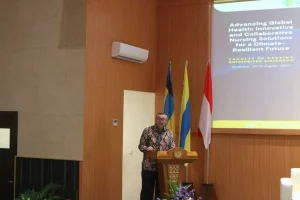UNAIR NEWS – Compulsory hijab for students in Indonesia has become a hot topic amongst the public. At the beginning of August, a student of SMAN 1 Banguntapan Bantul was depressed due to the hijab compulsory enforced by the teachers. It was not an isolated incident. In 2021, Human Rights Watch released a report on a discriminatory dress code in which female student was forced to wear hijab. Bad reports and stigmatization will surround those who refuse to wear or take off the hijab. In most cases, these provisions target non-Muslim female students.
Exploring the issue, the editorial team interviewed UNAIR Human Rights Expert, Zendy Wulan Ayu SH LLM. Zendy stated that the hijab compulsory at schools was rooted in the lack of tolerance for a child’s choices and beliefs. Some growing values in society often see differences in a negative light which drives forced uniformizations following the case.
“Children also have human rights which should be respected by everyone. Their rights were regulated by the Convention on the Rights of the Child (CRC), which Indonesia has ratified through Presidential Decree 36/1990. Children are equal to adults with full human rights. CRC also regulates the parents’ roles in caring and guiding their children,” she told UNAIR NEWS on August 24, 2022.
According to Article 14, Zendy emphasized that the state must respect the children’s rights to freedom of thought, belief, and religion. Such freedoms may only be limited by the human rights of others, as well as restrictions established by law to protect public safety, order, health, or morals. Article 3 of the CRC raises the mandates of children’s rights protection that must be based on their best interest. However, she said that the principle implementation should not be meant to allow discriminative policies and the freedom of religion.
“In Article 5 of this Convention, the State must respect the parental guidance of the child or other persons legally responsible for the child. However, the government must help families protect the children’s rights and provide age-appropriate guidelines so that each child can learn to use their rights and full potential,” said the European University Viadrina Frankfurt alumna.
Before ending the interview, Zendy said that due to discrimination and intolerance, the compulsory hijab policy cannot be meant as guidance for the children’s best interests. Besides, state schools are parts of the state which should respect the parents’ guidance for their children.
“In the future, the responsible institutions in the education field or the local government should use their authority in supervising several policies that could potentially violate children’s rights,” she concluded.
Author: Pradnya Wicaksana
Editor: Nuri Hermawan









